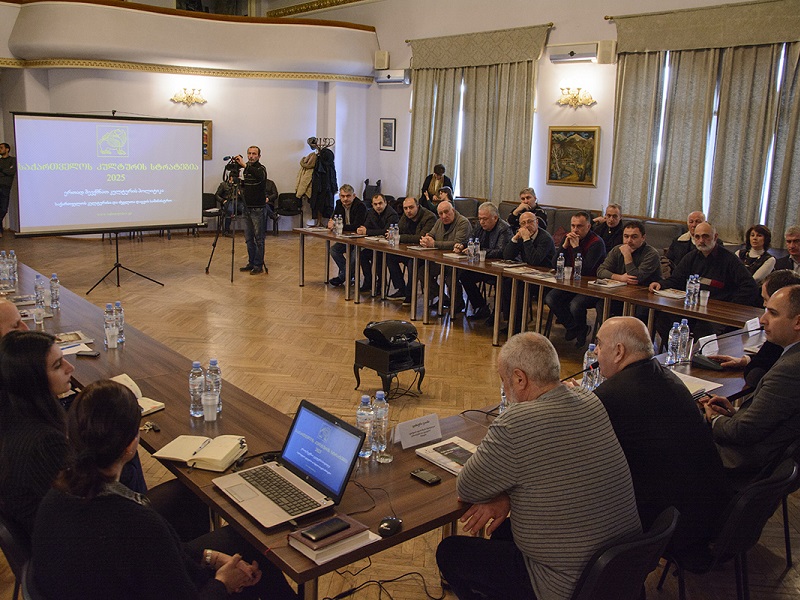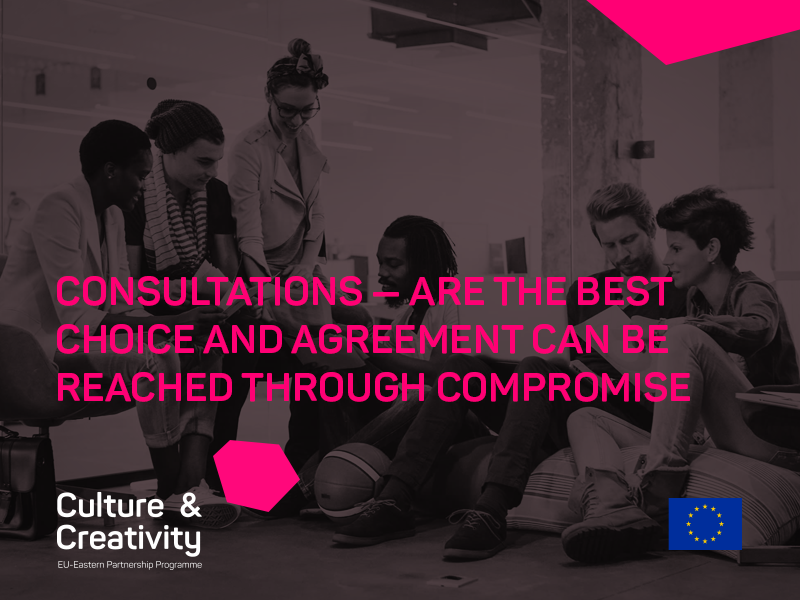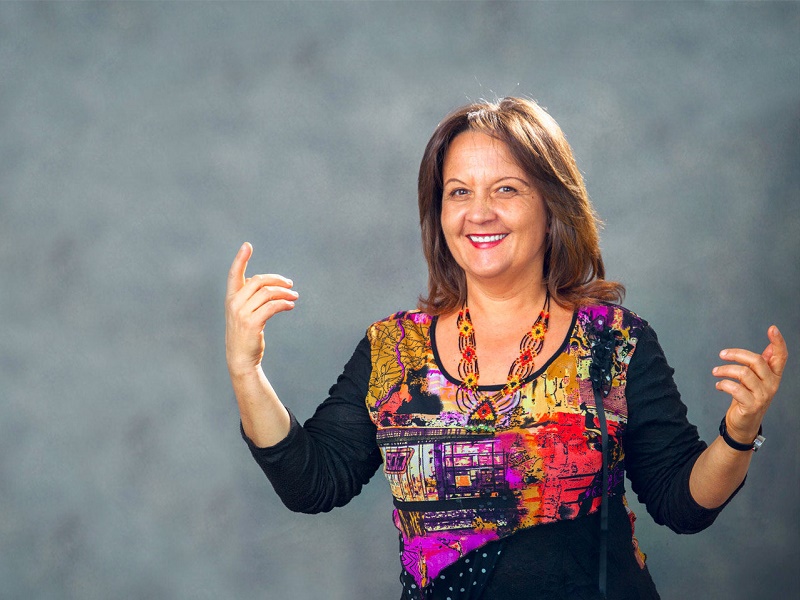
7 Key Moments from Georgian Cultural Strategy Development Process
First Step
It is always the hardest to make the first step, as it requires all the stakeholders to share the responsibility for all possible outcomes of this step. The statement of the Ministry of Culture and Monuments Protection of Georgia made on January 30, 2015 actually meant a radical change of the government’s attitude towards culture; moving to a broader definition of culture and creativity that means it is an inseparable part of social life, economics and an important tool for the development of the country. This shows an ambition and a wish to distance from post-Communist approaches, where culture serves as a tool to justify the interests of the ruling elite; and a wish to strengthen contemporary, European approach where cultural policy is a part of public policy and its main objective is to establish a common, fruitful and creative climate for the development of the society.
Existing circumstances
The aforementioned step was made possible by numerous circumstances. The most vivid and problematic among them was the inadequate existing cultural policy preventing development of the country. The Ministry’s initiative to update the policy revealed potential partners. EU representation in Georgia and Eastern Partnership First Cultural Program were involved in the process from the moment of its announcement and played a key role in defining the methodological practice and guiding principles. In Eastern Partnership countries the term “partnership” is accepted in business, in non-governmental sector but when it implies the partnership between governmental institutions, private and non-governmental sector, media and the society itself, the majority of the process participants turned out not to be ready for such a challenge. The condition where the result of the process should be more important for partners than their short-term interests and strengthening each other is what partners should be doing as it defines the success or failure of the process, turned out to be difficult to accept for the participants. While for the success of this ten-year process, common partnership is essential. In case of Georgia, notwithstanding several exceptions, there was no full-fledged partnership; this is the flaw to be addressed at the next stages and this potential was revealed during the second phase of the recently finalized consultations. The gap between the governments and the societies in Eastern Partnership countries is huge, due to the practice of isolated ruling of the governments; thus, it would impossible to fill it right at the first initiative but the preliminary work can be positive start for breaking the ice.

The Method
The Ministry could have chosen the easy way out and hire international experts that would develop a high-quality document, but this strategy would have remained shelved as a number of other documents in Eastern Partnership Governmental structures and it would be unfit for implementation. To make the document a workable guide for a ten-year process, its function, compilation methodology and the way of achieving goals should be understandable for each individual considered the participant of the process. Basically, there is nothing new in it, thousands of years ago the best method of raising the perception was involvement in the process.
"Tell me, and I will forget. Show me, and I may remember. Involve me, and I will understand." Confucius, circa 450 BC
Public involvement and consultations have several objectives:
To inform – the society about the activities planned by the government and their expected results.
To collect the opinions – of the society regarding the planned changes of the policy.
Participation and partnership – activities and expected results need to be discussed jointly.
The Ministry has chosen the hardest way to go, based on the best practices of the EU countries; this means elaboration of the Cultural Strategy and Action Plan in collaboration with State institutions, private and non-governmental sector, media and society. The choice is a real progress for Georgia, as well as the whole region, as it represents the contemporary model of the collaboration between government and society, based on public involvement, transparency and equal partnership. This is the method where the process might be even more important than the document and it lays the ground to a new, different environment where the decision-making methodology is completely changed; where each participant is equal in its rights and responsibilities; where the document has no particular author, as it is the product of the society of the country and the objective of this common effort is the well-being of each citizen of the country.
.png)
Tools and Works
The Ministry of Culture and Monuments Protection of Georgia openly selected Cultural Strategy Coordination Group (34 members) in order to hold the consultations; the representatives of the Ministry departments compiled the internal coordination group (10 members); for the coordination between public bodies the governmental commission was formed, consisting of the representatives of all ministries, Parliament of Georgia, representatives of Autonomous Republics and Tbilisi City Hall (41 members). The webpage www.culturepolicy.ge was created, containing information about the whole process and questionnaires for interested citizens. The questionnaires were sent to public and non-governmental organizations (297 letters in all); the first stage of consultations included organizing of 11 regional and 17 sectoral sessions; the information collected during the consultations and with the questionnaires created the basis for the first draft of the document. At the second stage of the consultations the Ministry held 11 regional meetings, simultaneously Eastern Partnership Culture and Creativity Programme organized 13 sectoral sessions.
The volume of the work mentioned was necessary because of the lack of communication in Georgia’s culture sector. The sectoral units from the Communist past no longer exist and there are no new umbrella-organizations or associations, unfortunately. Thus, there is no single organization that is authorized to represent a sector. There is no printed publication either that would enable even a unilateral communication. There is no TV/Radio broadcasting completely focusing on culture. The necessity of these tools is mentioned in the Strategy document but their functioning is of vital importance before the process starts.

Strategy Document
The inadequate cultural policy of the last decade in Georgia has created the problems that cannot be dealt with in a short-term perspective. Therefore, the Strategy document is oriented at 10 years that allow the systematic solving of the problems. It describes the expected cultural environment of Georgia in 2025, where the problems identified through the consultations do not exist and the goals of the document are achieved. Based on the consultation 8 main goals were identified; achieving them creates the environment where:
-
The value of culture and creativity is understood by the society and it is integrated into every level of education;
-
culture is accessible to each member of society notwithstanding their locality and cultural diversity is protected and supported;
-
Culture and creativity is the integral part of the country’s development that creates additional innovative opportunities for strengthening other fields and supports Georgian society’s sustainability and well-being;
-
Employment in the field of culture is attractive and the work of the people in the field is adequately valued;
-
Cultural infrastructure is corresponding to the needs of providing the customers with modern, high quality product and services;
-
Culture funding is stable, funding mechanisms are diverse and transparent;
-
Cultural policy is based on research; professionals and wider society is involved in the open and transparent policy process;
-
Culture and creativity is an important source of jobs, economic growth and innovation; the best environment for individual creativity expression is created.
Second stage of consultations
The second stage of consultations in the process of development of Georgia’s cultural strategy, organized by Eastern Partnership Culture and Creativity Programme, convinced the society that the process is serious and incited the expectation that the initiative stated in 2015 con actually lead to changes. The mediation by the Programme made the consultations free of unnecessary emotions and directed them into a constructive dialogue. It does not imply that everyone is satisfied, that there is no mistrust or cynicism between the partners, but it definitely means that the hope appeared – one can achieve an actual change in the country with the public involvement and partnership. The audience expressed their critical comments, raised new issues that must be included in the document; there was unexpected satisfaction when the audience members recognized their own comment in the working draft of the document. Notwithstanding the heated debates and discussions, at the end of the session everyone agreed that consultations are the best choice and agreement can be reached through compromise. The vast majority of the participants of 13 sessions expressed their readiness to be involved in the development of the Action Plan.
.png)
Challenges
At the current stage, the main challenge for the Eastern Partnership countries is limited participation of citizens in state policy drafting and implementation. The methodological practice of development of Cultural Strategy can be used in all fields and thus, public consensus can be reached. If by any reason, the process is hindered or the methodology is changed at the implementation stage, this will be a challenge not only for the field of culture. The motivation to choose “the hard way” will be lost in Georgia. If the process based on public involvement, transparency and partnership is not accomplished, the society will lose the hope in the possibility of change and respectively, democratic development of the society will be postponed for many years. This is not an idealist theory; this is just the only choice possible in modern reality. Our country’s constitutional structure is built on democratic principles. State institutions based on these principles need to have democratic ruling methodology. Neither central nor local governments can fully meet all the demands of electorate. Unsolved, urgent problems always exist in terms of insufficient funding. The nearest past experiences of the Eastern Partnership countries proved that in attempt to protect itself from the discontented electorate, the governments often choose the wrong, lawless decisions. Public involvement in governmental decision-making process is a tool to maintain democratic balance in the country. This is necessary in the process of civil society development. Civil society is a mediator between the government and the population and very often shields the government from the discontented voters. Equal partnership between the government and civil society is the only option in modern world to maintain the democratic environment.
Democratic development is the stage of human development that has no alternatives. The on-going European crisis is cause by the necessity of transition to a new stage of development of the society; as the existing principles and values do not correspond to the environment and the level of societal development in Europe. The integrity of the present world excludes individual well-being on every level. There is a need of new ideology based on integrated values that will be oriented at common well-being. This is achievable only for the society that has realized democratic values and is ripe for the new stage. Unfortunately, it is impossible to skip this step. The word “crisis” has a double meaning – on one hand, it denotes an ending to a certain stage, on the other – defines a beginning of the new one.




